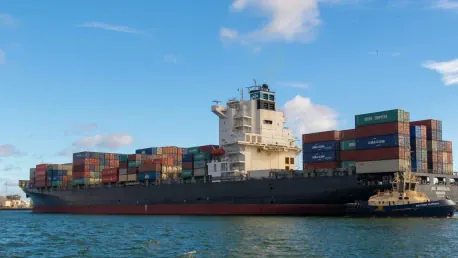In the complex and extensive world of maritime trade, a unified and comprehensive regulatory framework is critical to maintaining operational efficiency, safety, and environmental protection. The International Chamber of Shipping (ICS) and the Comité Maritime International (CMI) have recently launched an updated campaign to encourage governments worldwide to ratify pivotal maritime treaties. These treaties, which include the IMO Nairobi Convention on the Removal of Wrecks (Nairobi WRC) 2007, the IMO 2010 Protocol to the International Convention on Liability and Compensation for Damage in Connection with the Carriage of Hazardous and Noxious Substances by Sea (HNS), the IMO Convention for the Safe and Environmentally Sound Recycling of Ships (Hong Kong) 2009, and the United Nations Convention on the International Effects of Judicial Sales of Ships 2023, also known as the Beijing Convention, are essential for the consistent regulation of ships engaged in international trade.
Importance of Treaty Ratification
One of the main reasons treaty ratification is essential is the necessity for consistent regulations across all maritime vessels. Without such uniformity, fragmented and unilateral laws may arise, compromising safety standards and environmental protocols. The ICS and CMI’s campaign underscores that a cohesive regulatory framework is integral to preventing regulatory gaps that could disrupt smooth maritime operations. Ensuring that all nations adhere to these treaties creates a level playing field, where every vessel, regardless of its flag state, complies with the same safety and environmental standards. This uniformity not only protects the marine environment but also bolsters global trade efficiency by removing regulatory discrepancies that could lead to port delays and economic losses.
The campaign appeals to international shipowner and maritime law associations to lobby their governments to ratify these critical conventions. Kiran Khosla from ICS emphasizes that the shipping industry’s reliance on a global regulatory system is profound. Such a system prevents a chaotic patchwork of local regulations that can hinder effective maritime operations. Ann Fenech, president of CMI, further underscores the importance of legal certainty and regulatory stability in today’s complex geopolitical climate. She highlights that in a period marked by geopolitical tensions and economic uncertainties, maintaining a unified regulatory framework is more vital than ever.
Geopolitical Impacts and Challenges
The current geopolitical landscape poses significant challenges to achieving global treaty ratification. With varying levels of commitment to international agreements among governments, spearheading a collaborative approach to maritime regulation becomes an arduous task. This difficulty is further compounded by the stance of certain administrations, including the current U.S. administration, on international accords. In such a fractured political environment, convincing nations to sign and adhere to these treaties requires persistent lobbying and diplomatic efforts. Despite these hurdles, the ICS and CMI are determined to advocate for uniform regulations, highlighting the mutual benefits of collective international cooperation.
For instance, non-ratification of treaties such as the IMO Nairobi Convention on the Removal of Wrecks can lead to disjointed responses to maritime accidents, where some nations have robust frameworks while others lack comprehensive measures. This disparity not only endangers maritime operations but also threatens marine ecosystems and coastal communities. By promoting ratification, the ICS and CMI aim to establish a solid and predictable foundation for maritime governance that transcends national boundaries and political differences.
The Role of International Cooperation
Fostering international cooperation is at the heart of the ICS and CMI’s campaign. By encouraging global buy-in, these organizations seek to create a harmonious regulatory environment that benefits the entire international shipping community. Everyone from shipowners to coastal nations stands to gain from standardized practices, which enhance the safety, environmental protection, and economic efficiency of maritime operations. Collective ratification of these treaties guarantees that ships, regardless of their origin, abide by the same stringent regulations, thus upholding the integrity and safety of global maritime trade.
Moreover, the ICS and CMI stress that standardized maritime laws contribute to a more predictable and stable international trade environment, reducing risks for investors and stakeholders. Legal certainty, as reinforced by uniform regulations, is essential for long-term planning and investments in the maritime industry. As such, ensuring the widespread ratification of these treaties is not just a matter of compliance; it is a strategic imperative for the continuous growth and sustainability of global maritime commerce.
Future Outlook and Conclusion
Ratifying maritime treaties is crucial for maintaining consistent regulations across all vessels. Without such uniformity, disparate and unilateral laws could emerge, compromising safety standards and environmental protocols. The campaign by ICS and CMI highlights the need for a cohesive regulatory framework to prevent gaps that could disrupt maritime operations. Ensuring nations adhere to these treaties creates a level playing field where every vessel, regardless of its flag state, abides by the same standards. This uniformity protects the marine environment and enhances global trade efficiency by eliminating regulatory discrepancies that may cause port delays and economic losses.
The campaign calls upon international shipowner and maritime law associations to persuade their governments to ratify these vital conventions. Kiran Khosla from ICS stresses the essential nature of a global regulatory system for the shipping industry, avoiding a chaotic mix of local regulations that can impede maritime operations. Ann Fenech, president of CMI, emphasizes the need for legal certainty and regulatory stability, especially in a geopolitical climate marked by tensions and economic uncertainties. Maintaining a unified regulatory framework is more critical than ever in today’s complex world.









